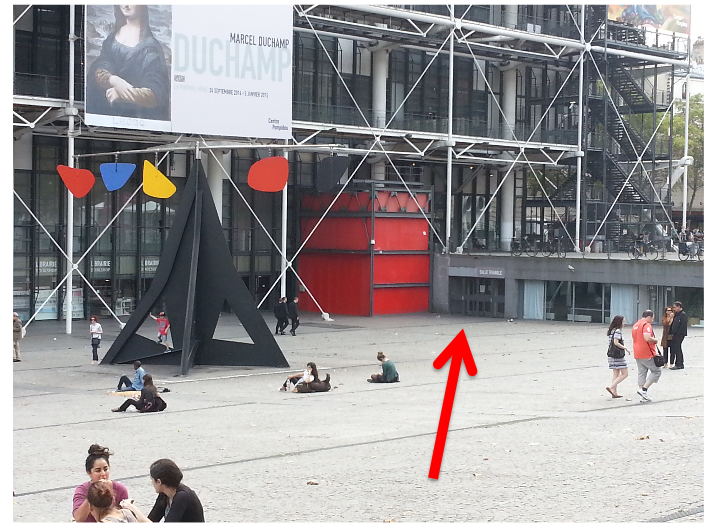Intimacy & Extimacy
who
- Bernard Stiegler (Institut de Recherche et d'Innovation)
- Georges Teyssot (Université de Laval, Québec, QC, CA)
- Isabelle Alfandary (Collège International de Philosophie)
- Pascal Ruffenach (writer, autor of Never Say, Edition L’Iconoclaste)
when
from 17:00 to 20:00
where
Centre Pompidou
Paris

This workshop explores – with a trans-disciplinary approach gathering psychoanalysis, philosophy, sociology and computer science – the concepts of localization, frontiers and boundaries in nowadays digital context where temporality and cardinality are blurred.
The question of privacy makes sense today, in the contemporary world, only from a social organization based on the distinction between the private sphere and the public sphere. This distinction appeared with polis in ancient Greece, and has undergone profound changes over the centuries, especially since the advent of modernity. In industrial society, the private sector has taken on an economic meaning, designating the market sector, while the notion of the individual in the modern sense, that is to say, as a subject, imposed itself. As for the “private life” (privacy), it became during the last two decades the object of an economic privatization, that is to say also of a computational formalization. This has come to affect - or to disaffect - in depth what has always been considered the most private of the private sphere under the name of intimacy, which refers to what must remain removed from the eyes of others and the public space.
It should be emphasized here that public is what is published, and that the privatization of publication, as it is in what Antoinette Rouvroy calls algorithmic governmentality, is what subtracts this process of publication to the public sphere in classic meaning - which is the res publica: the political sphere. Publication thus becomes an act in a privatized sphere - that which constitutes this or that platform. Such is the question that we would like to open in this session: if it is true that the most intimate of the intimate is what Freud called the unconscious (which evades the view of that one or of that very one of which he is the unconscious), how is one to understand the Lacanian notion of extime ?
We will examine these issues in the context of the Nextleap program as it is devoted to cryptology, and to the extent that the extime is what testifies to a crypt, ie a secret, which is the unconscious as it manifests itself only by becoming not conscious, but exteriorized beyond the intimate - beyond the sphere of the ego, and, in this, “published.” It is this paradox of the constitution of the secret by its very expression (in what Jacques Lacan called the signifier) which constitutes the extime (in the sense of Lacan), as shown for example by Jean-Louis Gault in The extimacy of the symptom (Ornicar, http://wapol.org/ornicar/articles/166gau.htm).
While it is true that the economic privatization of the private psychological sphere is what characterizes the data economy, the pathology that imposes itself on it bypasses the rapid efficiency of the algorithms, the processes of transindividuation in which only the formation of psychic apparatuses and their social arrangements are possible as a process of collective individuation. And the question arises of whether a new libidinal economy can appear, and under what conditions. Failing this, libidinal diseconomy would be the morbid fate of the generalized disruption induced by digital technologies, and the irruption of the drive in its innumerable perverse forms.